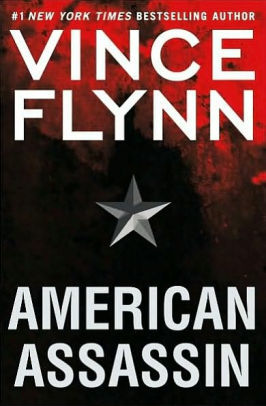
American Assassin
Chapter 5
by Flynn, VinceThe provided excerpt from *American Assassin* by Vince Flynn primarily serves as promotional material and acknowledgments rather than a traditional book chapter. It highlights the critical acclaim and popularity of Flynn’s Mitch Rapp series, emphasizing its relevance in post‑9/11 thrillers. Reviews from notable figures like Glenn Beck and Rush Limbaugh praise the series for its fast-paced, complex narratives and Rapp’s portrayal as a formidable CIA operative. The excerpt positions the book as a must-read for fans of action-packed, politically charged stories.
The text includes a dedication to the victims of the Pan Am Lockerbie terrorist attack, underscoring the novel’s thematic ties to real-world terrorism. Flynn’s acknowledgments reveal the collaborative effort behind his work, thanking his wife, editors, and industry professionals for their support. He also credits military and security experts for their insights, which lend authenticity to his plots. This section reflects Flynn’s appreciation for his team and readers, framing the novel as a labor of passion.
A brief preview of the story’s prelude introduces Mitch Rapp in Beirut, Lebanon, hinting at the high-stakes, gritty tone of the novel. The setting suggests Rapp’s involvement in covert operations, aligning with the series’ focus on counterterrorism. The excerpt ends abruptly, leaving readers curious about Rapp’s mission and the challenges he faces. This teaser effectively sets the stage for the action and intrigue that define the series.
Overall, the excerpt functions as both a promotional tool and a bridge to the novel’s narrative. It showcases Flynn’s reputation as a master of the thriller genre while offering a glimpse into the protagonist’s world. The combination of praise, personal reflections, and a suspenseful snippet ensures reader engagement and anticipation for the story ahead.
FAQs
1. What is the central premise of Vince Flynn’s “American Assassin” based on the provided chapter content?
Answer:
“American Assassin” is a thriller that explores the origins of Mitch Rapp, a CIA operative described as “the nation’s ultimate hero” and a “human weapon” trained to combat terrorism. The novel delves into Rapp’s transformation into a lethal asset in America’s war on terror, set against the backdrop of geopolitical tensions. The chapter emphasizes Rapp’s steely resolve and the high-stakes nature of his missions, positioning him as a Jason Bourne-like figure for the post-9⁄11 era. The story promises action, political intrigue, and a deep dive into counterterrorism tactics.2. How does the chapter establish Mitch Rapp’s significance within the thriller genre?
Answer:
The chapter highlights Rapp’s uniqueness through comparisons to iconic characters like Jason Bourne and Rambo, as well as effusive praise from critics and media figures (e.g., Glenn Beck, Rush Limbaugh). Descriptions such as “complex, chilling, and satisfying” and “the king of high-concept political intrigue” underscore his appeal. Rapp’s blend of tactical brilliance, moral ambiguity, and patriotic duty positions him as a quintessential postmodern thriller protagonist, resonating with post-9⁄11 anxieties about security and retribution.3. Analyze the thematic relevance of the novel’s dedication to Pan Am Lockerbie victims.
Answer:
The dedication ties the fictional narrative to real-world terrorism, grounding Rapp’s story in historical trauma. The 1988 Lockerbie bombing—a symbol of transnational terror—mirrors the novel’s exploration of vengeance, justice, and the ethical costs of counterterrorism. By honoring the victims, Flynn signals that Rapp’s missions are not just escapism but a cathartic response to unresolved collective grief, reflecting post-9⁄11 demands for retributive action and moral clarity.4. What does the chapter suggest about Vince Flynn’s authorial perspective on counterterrorism?
Answer:
Flynn’s perspective emerges as hawkish and pragmatic, emphasizing proactive measures over political correctness. Quotes like “watching Mitch Rapp knock off the bad guys nobody seems able to get in fact” critique bureaucratic inertia in security agencies. The novel’s tone aligns with conservative commentators (e.g., Bill O’Reilly, Karl Rove), suggesting Flynn endorses Rapp’s ruthless efficacy as necessary for national survival. This reflects post-9⁄11 debates about civil liberties versus security.5. How does the chapter’s structure and promotional content engage potential readers?
Answer:
The chapter employs a barrage of endorsements and hyperbolic blurbs (“electrifying,” “edge-of-your-seat”) to create urgency and credibility. By listing Flynn’s prior works and emphasizing the #1 bestseller status, it leverages his established fanbase. The teaser about Rapp’s “young man” origins hooks readers with character-driven intrigue, while references to “nonstop action” and “surprising twists” cater to thriller conventions, ensuring broad appeal.
Quotes
1. “Behind the steely gaze of the nation’s ultimate hero is a young man primed to become an AMERICAN ASSASSIN”
This quote encapsulates the core premise of the chapter - introducing Mitch Rapp as a formidable yet still-developing protagonist being molded into America’s deadliest weapon against terrorism.
2. “Rapp is still the best CIA-trained human weapon this side of Jason Bourne.”
A significant comparison that establishes Rapp’s elite capabilities within the thriller genre, positioning him alongside one of fiction’s most iconic action heroes.
3. “Pure high-powered exhilaration.”
This concise praise from the Lansing State Journal perfectly captures the intense, fast-paced nature of Flynn’s writing style that characterizes the chapter’s action sequences.
4. “Every American should read this book.” - Bill O’Reilly
This endorsement highlights the novel’s perceived importance in understanding post-9⁄11 national security issues, suggesting the chapter offers valuable insights into counterterrorism.
5. “A Rambo perfectly suited for the war on terror.”
This Washington Times quote effectively frames Rapp as the post-9⁄11 era’s answer to 1980s action heroes, updated for modern geopolitical conflicts.
